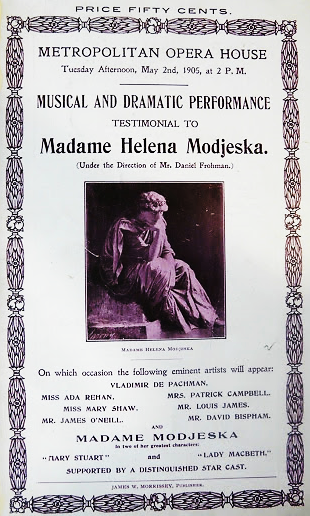
From the Google Cultural Institute
Enveloped in veneration as “one of the greatest and noblest artists of all times and nations,” Helena Modjeska celebrates her jubilee on May 2, 1905, in the sold-out Metropolitan Opera House in New York City.
Sponsors include Mark Twain, Grover Cleveland, William Dean Howells, Maud Adams, and one hundred other luminaries. Her fifty-year career places the Polish actress among the gilded stars of the Golden Age of the Theater in her adopted land, a constellation that aligns her with Mary Anderson, Adelaide Ristori, Eleonora Duse, Adelaide Neilson, Rose Eytinge, Sarah Bernhardt, and Ellen Terry.
After preliminary performances by Ada Rehan and Mrs. Patrick Campbell, famed leading ladies in their own right, Madame Modjeska does three scenes as Lady Macbeth and one scene from “Mary Stuart.”
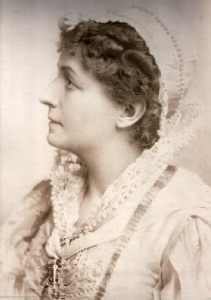
Modjeska as Mary Stuart
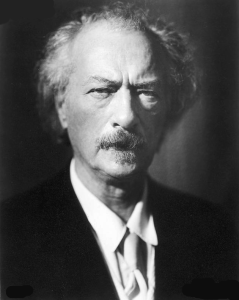
Ignacy Paderewski
The four-hour benefit had been organized by her fellow Pole, the renowned pianist Ignacy Jan Paderewski. Badly injured in a railroad accident, Modjeska’s young friend misses the celebration. (He will recover. Some day he will become independent Poland’s first prime minister.)
In December the same year, the Nobel Prize for Literature goes to Henryk Sienkiewicz, a fellow Pole she had once becharmed. He is honored in Stockholm “for outstanding merits as an epic writer,” especially for his Trilogy, and his novel set in Nero’s Rome, Quo Vadis?
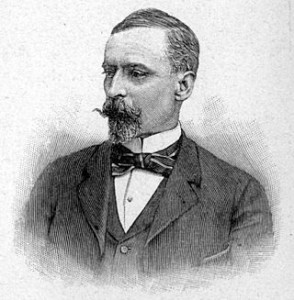
Henryk Sienkiewicz
The Swedish Academy also offends Russian despots by recognizing the nationhood of Poland, then suppressed as a “province” under the heel of Imperial Russia. In his acceptance, Sienkiewicz says, “It has been said that Poland is dead, exhausted, enslaved, but here is the proof of her life and triumph. Like Galileo, one is forced to think E pur si muove [And yet it moves] when before the eyes of the world homage has been rendered to the importance of Poland’s achievement and her genius.” (His words are quoted in 1983 by Danuta Wałęsa when she accepts the Nobel Peace Prize on behalf of her husband, Lech Wałęsa, key leader in the 1980s of the Solidarity movement that freed Poland from puppethood under Soviet Russia.)
When C.D. af Wirsén presents the Nobel Prize, he compliments Sienkiewicz for “historical truthfulness,” his “epic style,” and “a wealth of pure and true feeling.” In an aside, he also says, “The portrait of the jovial nobleman Zagłoba imprints itself perhaps even more firmly in our memory… His vainglory, his girth, and his taste for wine recall Falstaff, but these are their only common traits. Whereas Falstaff is of a dissipated and questionable character, Zagłoba has a heart of gold; he is faithful to his friends in times of danger.”1
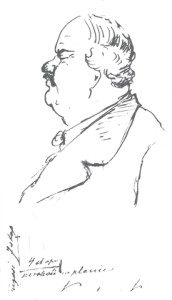
Sketch of RK Piotrowski by Henryk Sienkiewicz
Nobody would have been prouder at the two events than Rudolf Korwin Piotrowski, the Polish exile in San Francisco who was the template for Zagłoba, the idiosyncratic character created by Sienkiewicz in his Trilogy. Piotrowski was an occasional guest at Modjeska’s home in Anaheim, where she and her Polish friends attempted – and failed – to live an agrarian communal life. When the suicidal Modjeska says in San Francisco that she will quit the stage forever, and means it, Korwin speaks eighteen words that convince her to resurrect her career. But in the year of great honors for Sienkiewicz and Modjeska, the Falstaffian pioneer is dead. And forgotten.
Lynn Ludlow and Maureen Mroczek Morris
Korwin Piotrowski, along with Henryk Sienkiewicz and Helena Modjeska, is resurrected and celebrated in literary form by those two chroniclers of Polish California, Lynn Ludlow and Maureen Mroczek Morris, in their forthcoming book, tentatively titled The Tosspot, the Scribbler, and the Diva. We thank them for this fragment and can’t wait to read more.
- C.D. af Wirsén. “Award Ceremony Speech.” ↩
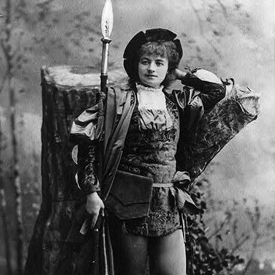
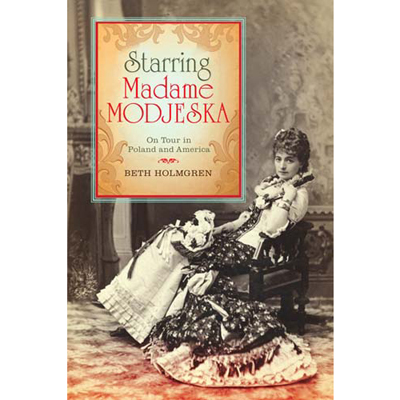

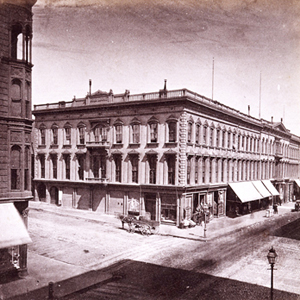
Pingback: Welcome to Winter 2016!
LOVE IT! Can’t wait to hear the 18 words that saved Modjeska’s life.
Lynn and Maureen —
What a delight! I’m so glad that your hard work is making its way out into the world, where we can all enjoy it!
Kudos, Felicitaciones, and Bravissimi!
Wait for the book! 😉
See Facebook comment from the Los Angeles Consulate: https://www.facebook.com/permalink.php?story_fbid=1096031997114584&id=197906586927134&fref=nf